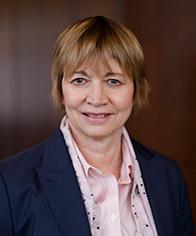Q&A: Accelerating Climate Action at MIT
Maria Zuber, Vice President for Research, E. A. Griswold Professor of Geophysics

Maria Zuber is responsible for research administration and policy at MIT. She oversees more than a dozen interdisciplinary laboratories and centers, as well as Fast Forward: MIT’s Climate Action Plan for the Decade, a comprehensive plan to help address the climate crisis. In partnership with Associate Provost for International Activities Richard Lester PhD ’80, she spearheaded MIT’s first-ever Climate Grand Challenges initiative, which launched in 2020.
What is the Climate Grand Challenges initiative?
The Climate Grand Challenges called on MIT researchers to contribute their best ideas to solving the most difficult climate problems. Nearly 400 MIT faculty members and senior researchers contributed to almost 100 proposals. After an extensive evaluation, the Institute invited 27 finalist teams to develop comprehensive research and innovation plans. In April 2022, MIT selected five flagship projects to receive funding and support with the goal of bringing high-impact, science-based climate solutions to the world. These five projects encompass sustainable and resilient agriculture; next-generation climate modeling; climate adaptation and preparing for climate and weather extremes; and the reinvention of hard-to-decarbonize industries, like steel and cement.
How are different departments across MIT collaborating on climate?
Nearly every department on campus is engaged in climate work, evidenced by the fact that 90% of departments submitted Climate Grand Challenges proposals. They are doing this work in interdisciplinary, collaborative ways. Of the 27 finalist teams, most have representation from three or four of the schools and the College of Computing. A key part of the promise of the Grand Challenges projects is that they exist at the intersection of multiple fields, involving a synthesis of scientific, engineering, social scientific, and humanistic knowledge, insights, and approaches.
How can a planned gift benefit the Climate Grand Challenges?
The generosity of our alumni and friends is vital to our work, and many donors share our conviction that climate change is today’s defining challenge. Planned giving is part of the foundation that enables us to research and develop new climate solutions and train the next generation of climate leaders. Planned gifts made today will support the Institute in creating the innovations of the future.
Both of your grandfathers were coal miners in eastern Pennsylvania. How does that affect your views on climate change?
My grandfathers mined coal at a time when the regional coal industry was already in decline, and along with it, so were economic opportunities. My personal experience taught me that if we want the transition to clean energy to be durable, we need it to be fair. There will be plenty of opportunity in our clean energy future. We have to make sure that communities everywhere see themselves as part of that future.
You’ve said in the past that rather than despair about climate change, we should look for scientific breakthroughs that offer solutions. What areas of climate research offer hope?
Climate Grand Challenges just gave us 27 reasons for hope—we would love to be able to support all of these finalists. Across MIT we are seeing promising developments in many areas, from battery technology to building efficiency to fusion energy, which has seen truly exciting developments in the last year.
Are today’s MIT students focused on the climate threat?
Much of my optimism is because of our students. They bring incredible focus and dedication to solving this problem. Working together, I believe we can solve the climate challenge.
